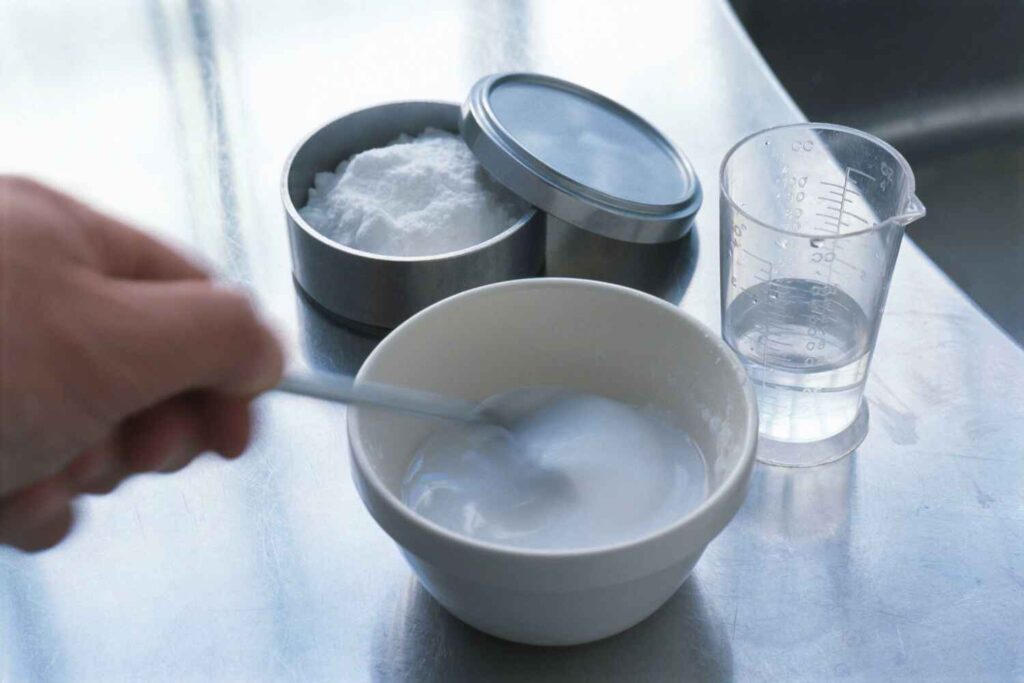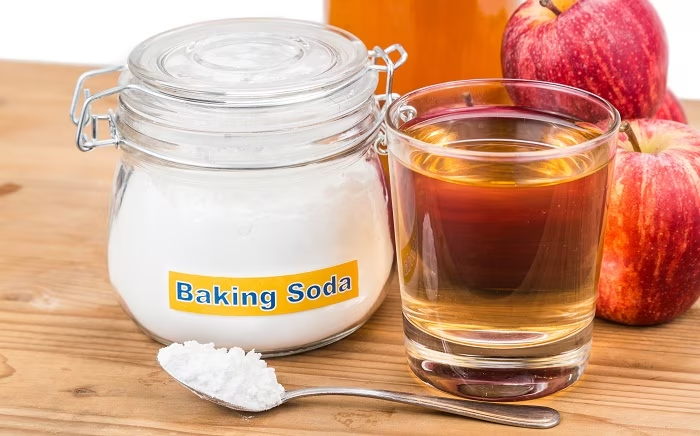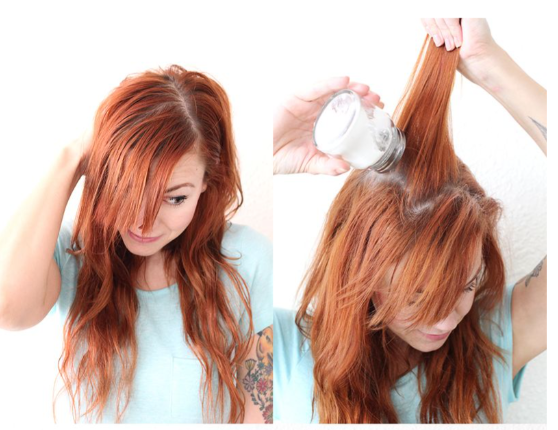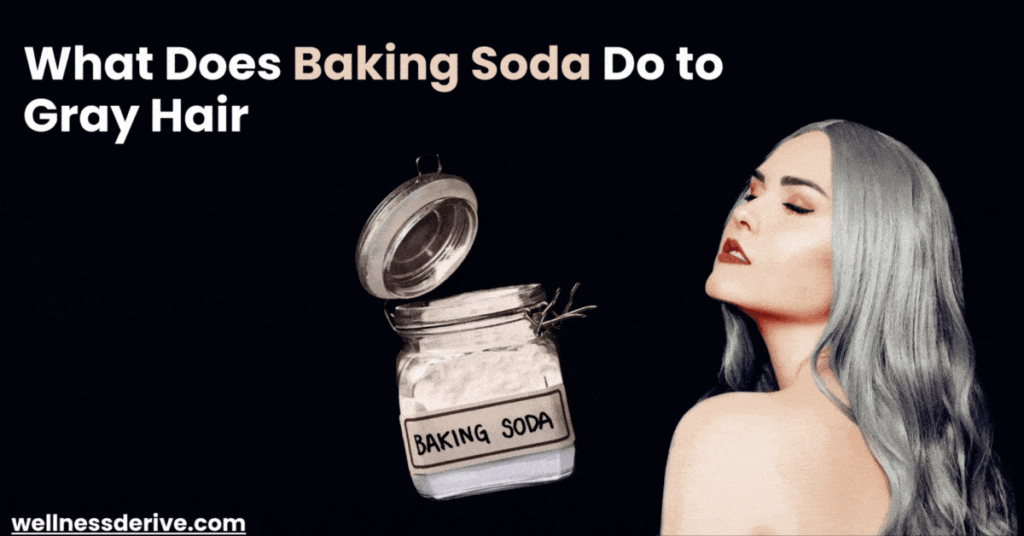Gray hair is a natural part of aging, but for many people, its texture and tone can change over time—sometimes appearing dull, brassy, or yellow. This has led many to explore natural remedies to enhance the appearance of gray hair. One such remedy is baking soda, a common household ingredient known for its cleaning properties. But what exactly does baking soda do to gray hair, and is it safe to use? In this article, we’ll explore how baking soda interacts with gray hair, its potential benefits, risks, and how to use it safely.
Understanding Gray Hair: What Causes It?
Hair turns gray when the pigment-producing cells in our hair follicles (melanocytes) gradually stop producing melanin. This process is mostly determined by genetics, but environmental factors like stress, diet, and exposure to pollutants may also accelerate it. As hair loses melanin, it not only changes color but often becomes more coarse, dry, and prone to buildup—making proper care even more essential.
What Is Baking Soda and Why Is It Used for Hair?
Baking soda, or sodium bicarbonate, is a mildly abrasive, alkaline compound often used for cleaning. In hair care, it’s known for its clarifying and exfoliating properties, helping to strip away dirt, oils, and product residue. Because of its high pH (around 9), it can open the hair cuticle and cleanse deeply, though this same property can be damaging if misused.
Why People Use It on Hair
Many people use baking soda as a natural alternative to shampoos for clarifying the scalp or removing buildup. For gray hair specifically, it’s believed to help brighten strands, remove yellow or dull tones, and restore shine without the use of harsh commercial products.
Benefits of Using Baking Soda on Gray Hair
Baking soda is a natural and affordable option for maintaining gray hair. Here’s how it helps:
1. Removes Yellowing and Stains
- Why It Happens: Gray hair is more prone to yellowing due to environmental factors, such as pollution or hard water.
- How Baking Soda Helps: Its mild abrasive properties can gently remove build-up and stains, restoring brightness.
2. Acts as a Gentle Cleanser
- Baking soda removes dirt, oil, and residue from hair products without harsh chemicals.
- Ideal for people seeking sulfate-free cleaning solutions.
3. Enhances Shine and Softness
- By removing impurities, baking soda enhances the natural shine of gray hair.
4. Helps with Scalp Health
- Baking soda’s alkaline nature helps exfoliate the scalp, reducing dryness and irritation.
Also read: How to Remove Ash Toner from Hair
How to Use Baking Soda on Gray Hair
Using baking soda on gray hair can help remove buildup, brighten dull strands, and reduce yellow tones. Below, we’ll explain step-by-step methods and safety tips to ensure you get the best results without damaging your hair.
1. Baking Soda Wash for Gray Hair

- Ingredients:
- 1 tablespoon of baking soda.
- 1 cup of warm water.
- Steps:
- Mix baking soda with warm water to create a paste or diluted solution.
- Apply to wet hair, focusing on the roots and lengths.
- Gently massage for 2–3 minutes.
- Rinse thoroughly with water and condition as usual.
2. Baking Soda and Vinegar Rinse

- Ingredients:
- 1 tablespoon of baking soda.
- 2 tablespoons of apple cider vinegar.
- 1 cup of water.
- Steps:
- First, wash your hair with the baking soda solution.
- Rinse with the diluted vinegar to restore pH balance.
- This method is excellent for brightening gray hair and reducing yellow tones.
3. Baking Soda as a Dry Shampoo

- Sprinkle a small amount of baking soda onto the roots to absorb oil and refresh gray hair between washes.
Precautions When Using Baking Soda on Gray Hair
While baking soda has many benefits, improper use can lead to damage. Here’s what to keep in mind:
1. Limit Frequency
- Baking soda is highly alkaline, which can strip natural oils if overused.
- Use it 1–2 times a month to avoid dryness or brittleness.
2. Always Condition After Use
- Baking soda can leave hair feeling dry. Follow up with a deep conditioner or hair mask to restore moisture.
3. Avoid on Sensitive Scalps
- If you experience irritation, discontinue use and consult a dermatologist.
4. Test on a Small Section
- Before full application, test baking soda on a small section of hair to ensure compatibility.
Also read: How to Remove Dark Toner from Hair
What Happens When You Use Baking Soda on Gray Hair?
Baking soda can have both positive and negative effects, depending on how it is used:
- Positive Effects:
- Removes dullness and yellowing.
- Brightens and enhances the natural silver tones of gray hair.
- Negative Effects:
- Overuse can weaken hair strands and lead to dryness.
- May not be suitable for dyed gray hair, as it can strip artificial color.
How Baking Soda Compares to Other Gray Hair Care Methods
| Method | Benefits | Considerations |
| Baking Soda | Removes yellowing, natural cleanser, affordable | Can be drying if overused. |
| Purple Shampoo | Neutralizes brassy tones effectively | May leave a purple tint if overused. |
| Apple Cider Vinegar Rinse | Balances pH, reduces build-up, adds shine | Smell can be strong. |
| Professional Toners | Long-lasting results for yellow or brassy tones | Expensive and requires a salon visit. |
Potential Risks of Using Baking Soda on Gray Hair
While baking soda can offer some cleansing and brightening benefits, it also comes with potential drawbacks—especially for delicate gray hair. In the section below, we’ll explore the common risks such as dryness, breakage, and scalp irritation, and explain why moderation is key when using this natural remedy.
1. Dryness and Breakage
Baking soda’s alkaline pH can strip the hair of its natural oils, especially with frequent use. Gray hair, which is already more prone to dryness and coarseness, can become brittle and break more easily when exposed to harsh cleansing agents. Prolonged use may roughen the cuticle and cause frizz or split ends.
2. Scalp Irritation
Some people may experience sensitivity to baking soda, particularly those with dry or sensitive skin. Using it too frequently or in high concentrations can cause redness, itchiness, or even inflammation. Always do a patch test before applying any new treatment to your scalp or hair.
Alternatives to Baking Soda for Gray Hair Care
If baking soda doesn’t work well for your hair, or you’re concerned about potential damage, consider these gentle alternatives:
- Apple Cider Vinegar Rinse – Helps remove residue and adds shine without stripping moisture.
- Purple Shampoo – Specifically designed to neutralize yellow and brassy tones in gray, silver, and blonde hair.
- Coconut Oil or Argan Oil – Nourishes dry gray strands, improving softness and shine over time.
- Aloe Vera Gel – Soothes the scalp while lightly cleansing and hydrating hair.
These alternatives offer safer, more moisturizing ways to care for your gray hair while still addressing common issues like dullness and buildup.
FAQs: Baking Soda and Gray Hair
Conclusion
Baking soda is a simple, affordable way to care for gray hair, especially for removing yellow tones and product build-up. When used correctly, it can restore the natural vibrancy of your hair and improve overall texture and shine. However, it’s essential to use baking soda sparingly and follow up with moisturizing treatments to keep your hair healthy and strong.
By incorporating baking soda into your gray hair care routine, you can enjoy brighter, cleaner, and more radiant locks. Always test on a small section first and monitor your hair’s response to ensure the best results!
Disclaimer: The content on Wellness Derive is for informational purposes only and not a substitute for professional medical advice, diagnosis, or treatment. Always consult a healthcare provider for medical concerns.



